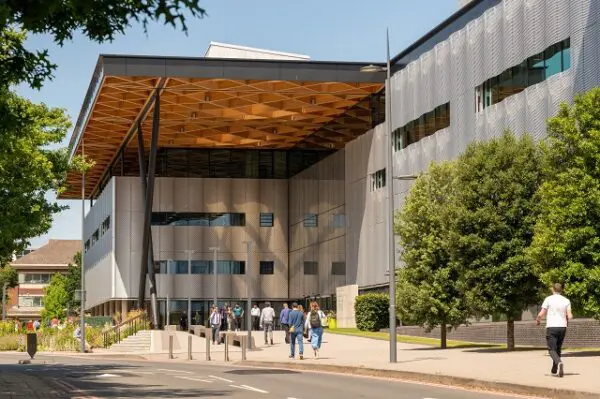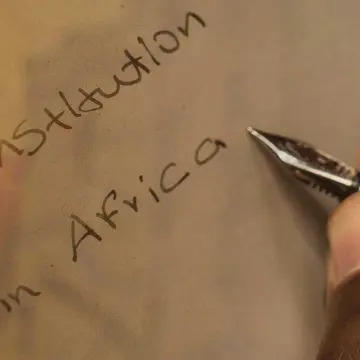
Antwerp, Belgium
From Disciples to Followers: Questioning the Digital Experience of Religions Online
When:
23 August - 28 August 2026
Credits:
0 EC
Read more
Political Science
When:
04 July - 15 July 2016
School:
Engaging Conflict Summer School
Institution:
University of Torino
City:
Country:
Language:
English
Credits:
3 EC
Fee:
500 EUR

The program is structured around two intensive weeks. Engaging Conflict activities are not limited to lectures, as workshops, seminars and roleplays complete the schedule. In addition, specifically designed thematic conversations will offer participants the opportunity to interact with scholars and practitioners alike in an informal environment. The School runs 5 days a week and the daily schedule is from 9 am to 1 pm (morning session) and from 2:30 to 4:30 pm (afternoon session).
Classes are limited to 25 participants, English proficiency is required, and international applications are welcome. Ideal candidates have a basic understanding of conflict-related issues. Several scholarships are available, covering anything from tuition fees to accommodation and meals. Please do check whether you may be eligible for one of them.
Syllabus:
Week One
Theoretical and Conceptual Approaches to Conflict and Violence
Elise FÉRON (Tampere Peace Research Institute, University of Tampere)
This module is designed to examine the various approaches that have been developed to understand conflict in its different forms with a particular focus on contemporary research on the causes, effects and dynamics of intrastate conflicts and civil wars. The module also provides an opportunity to examine emerging approaches to conflict and to look at the extent to which theory is evolving to keep up with rapid changes in different conflict environments.
Féron 1: Introductive Remarks and the Concept of “New Wars”
Féron 2: Ethnicity, Religion and Conflicts
Féron 3: Territory and Conflicts: From Local to Transnational Approaches
Féron 4: Socio-Economic Dimensions of Conflicts
Féron 5: Gender and Conflicts
Féron 6: New Stakes in Conflicts
Féron 7: Conflict Prevention and Early Warning
War and Conflict in Global Society
A.J.R. GROOM (University of Kent at Canterbury and Canterbury Christ Church University)
The module aims to develop an awareness that change and conflict are endemic in global society at all levels. It explores the different ways in which actors have sought to resolve that conflict. A vital question is to examine the conditions under which change is managed or accepted and those in which it is resisted, since this has fundamental consequences for the outcome of attempts at conflict prevention and resolution. The outcome determines whether there will be war or peace.
Groom 1: Paradigms in Conflict
Groom 2: Living with Change
Groom 3: Coercive Responses and Palliatives
Groom 4: After the Peace
Groom 5: Problem Solving and Second Track Diplomacy
People and Peacebuilding
Roger MACGINTY (Manchester University)
People are often ‘written out’ of peacebuilding. Programmes and initiatives aimed at peace are often top-down, remote and template-style. This module looks at how and why people have been marginalized in many approaches to peacebuilding. It also examines the very real capacity for people to engage in reconciliation and peacemaking. The module will engage with theories and concepts, and draw on multiple examples from around the world.
MacGinty 1: Technocracy and Peacebuilding
MacGinty 2: Everyday peacebuilding
MacGinty 3: The local and peacebuilding
Week Two
The Challenges of Peacebuilding
Mats BERDAL (King’s College London)
The module is designed to provide a comprehensive and critical overview of the international community’s efforts over the past two decades to bring “lasting peace and stability” to societies affected by war and protracted conflict.
Berdal 1: The Political Economy of War and Peace
Berdal 2: Post-war Violence and Peacebuilding
Berdal 3: From Cambodia to Afghanistan: The UN and International Peacebuilding After the Cold War
The Resilience of War
Christopher COKER (LSE – London School of Economics)
In 2003 the EU celebrated the fact that the world was more peaceful than it had ever been but that was before ISIS, and Ukraine.
Peace is a work in progress. War is one of the most resilient human activities; it is has evolutionary possibilities that have still to be realised; it has not yet reached an evolutionary dead end.
Coker 1: Why War Can’t Be Eliminated
Coker 2: Humanising War
Introduction to Mediation and Third-Party Participatory Processes
Juan DIAZ (INGroup Berlin)
This module is an introduction to the methods and styles of international mediation. It is taught through experiential learning in which students are given personal experiences with the themes through reflection, exercises, practice, and feedbacking. By the end of the unit student will be able to understand key theoretical issues in the field of conflict resolution; to have some familiarity with the main theoretical schools that study mediation; to understand the main concepts and techniques used in mediation; and to experience the practice of mediation through a series of practical exercises. This unit is not a certification in mediation and is not a definitive course on the topic. It is a practical introduction to the topic to complement the existing theoretical courses in the program.
Diaz 1: Understanding Third-parties Processes
Diaz 2: Understanding of Mediation
Diaz 3: The Mediation Process
Diaz 4: Mediation Role Play
Diaz 5: Mediation Debriefing and Experiences from the Field
Week two activities will be complemented by “Meet the expert” events.
The Engaging Conflict Summer School is designed to equip committed students, early-career researchers and professionals with advanced tools to critically understand conflict and tackle it as a dynamic reality.
Engaging Conflict’s faculty draws from a unique spectrum of expertise to train a select group of participants in assessing the complexity of conflict and post-conflict scenarios, and evaluating the relevance and impact of different policy choices or normative standings, from non-intervention to conflict prevention.
The Engaging Conflict Summer School addresses three core questions:
1 – What is conflict? Conceptualizing and understanding conflict
Conflict as a concept; conflict as discourse;
What differentiates conflicts of different kinds, what are their constitutive components?
When, where and why do such different kinds of conflict occur? What implications are attached to different kinds of conflict?
2 – How does conflict work? Causes and dynamics of conflict
Causes: the politics of identity, the role of religion, territory, mobilization mechanisms;
Sustainability: the economy of conflict;
Broader issues: ethnicity; gender and conflict; regional aspects and peculiarities.
3 – How can we influence conflict? Intervening on conflict, and possible outcomes
Conflict prevention (vs. the implications of “give war a chance”), early warning and monitoring;
Mediation, negotiation and third-party involvement;
Peacebuilding and its implications; conflict and development nexus.
Fee
500 EUR, This amount covers tuition and working materials
When:
04 July - 15 July 2016
School:
Engaging Conflict Summer School
Institution:
University of Torino
Language:
English
Credits:
3 EC

Antwerp, Belgium
When:
23 August - 28 August 2026
Credits:
0 EC
Read more

Coventry, United Kingdom
When:
14 July - 24 July 2026
Credits:
0 EC
Read more

Budapest, Hungary
When:
20 July - 25 July 2026
Credits:
2 EC
Read more